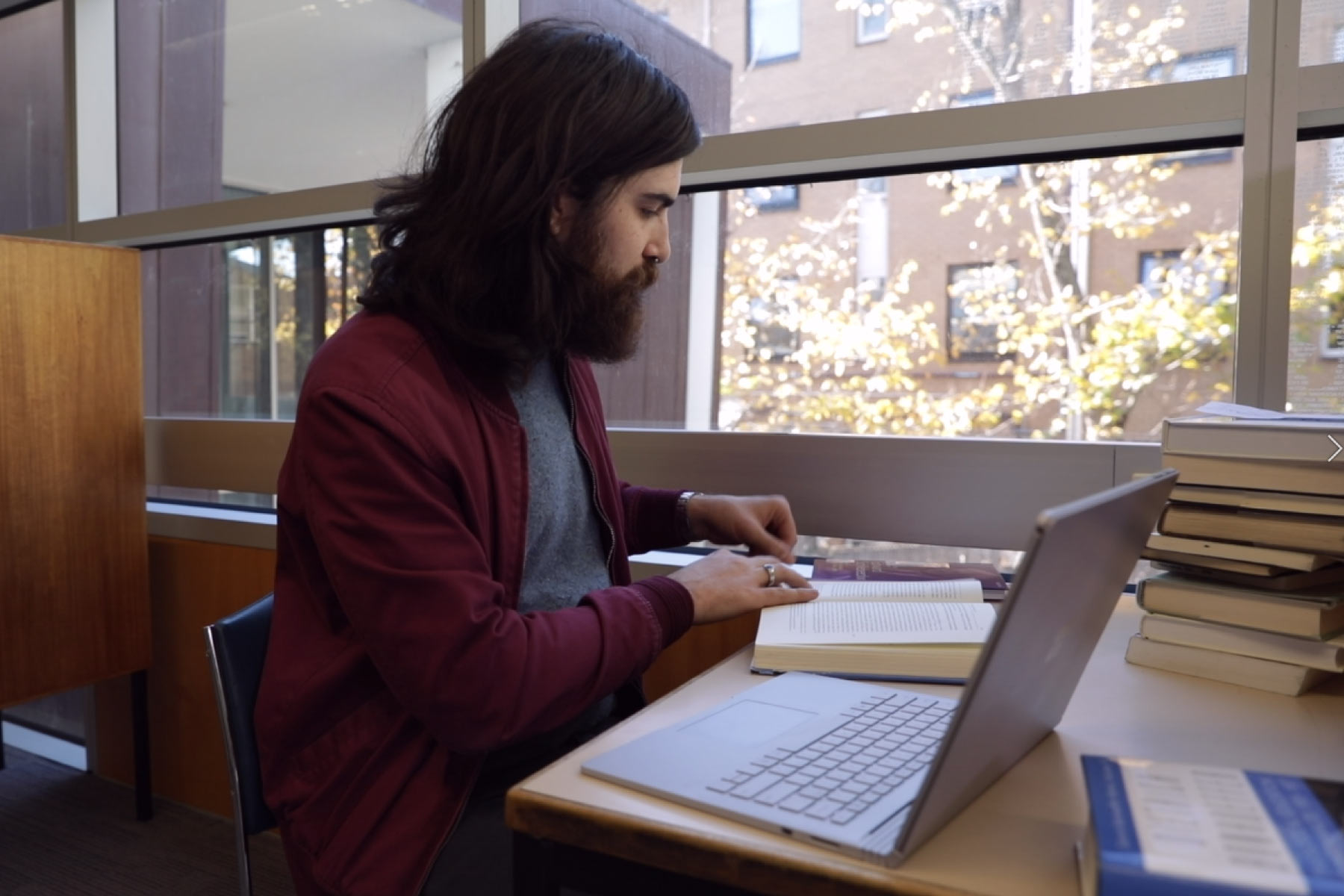The University is renowned for its HDR graduates. Many graduates have gone on to academic positions in Australia and overseas, and the University has a success rate well above the national average.
The School of Graduate Research (SGR) fosters a high-quality learning environment for higher degree by research (HDR) students and their supervisors from pre-admission information through to post-candidature guidance and networking.
All higher degree by research students and their supervisors become members of the School of Graduate Research. Members are entitled to a range of programs to support their successful completion, including an orientation program, annual Research Conference, HREC training, Thesis Boot Camp, and Research Methodologies.
Research students have access to extensive library resources and to supervision by some of Australia’s best theologians.
Courses
The University offers three higher degrees by research
- Master of PhilosophyDuration1.5 years full-time,
Up to 4 years part-timeModesClassroom, Mixed, OnlineColleges & SchoolsAvailable at 12 Colleges and SchoolsThe Master of Philosophy is a higher degree by research in divinity or one or more of its associated disciplines and is designed for individuals who bring a foundation within this disciplinary range. The purpose of the Master of Philosophy is to qualify individuals to apply an advanced body of knowledge in divinity or one or more of its associated disciplines in a range of contexts and to provide a pathway for possible further learning.
- Doctor of PhilosophyDuration3 years full-time,
Up to 8 years part-timeModesClassroom, Mixed, OnlineColleges & SchoolsAvailable at 12 Colleges and SchoolsThe Doctor of Philosophy is a higher degree by research in divinity or one or more of its associated disciplines. The purpose of the Doctor of Philosophy is to qualify individuals who apply a substantial body of knowledge to research, investigate and develop new knowledge, in one or more areas of investigation, scholarship or professional practice.
- Doctor of Professional PracticeDuration3 years full-time,
Up to 8 years part-timeModesClassroom, Mixed, OnlineColleges & SchoolsAvailable at 1 College/SchoolThe Doctor of Professional Practice is designed for experienced practitioners to develop advanced knowledge and skills relevant to their professional context. It equips mature professionals to develop their research competency and their critically reflective practice, and to further develop their theoretical knowledge.
Students undertake advanced coursework and independent supervised research, integrating critical thinking, spiritual awareness, and theological engagement with a body of knowledge and lived experience through enquiry-based research to address complex problems and initiate positive and sustainable change in their professional context. By engaging with theory and practice, candidates contribute in significant ways to the application of knowledge and/or practice within diverse professional contexts.
Students then complete a research project of not more than 65,000 words and submit at least one article or equivalent to a peer-reviewed publication.
Graduates of the program are strategically innovative and collaborative practitioners who integrate understandings of self, profession, systems, and context.
Introducing the School of Graduate Research
Applications and Admission
Consult the information in the pages below for detailed guidance on how to apply for admission into a research degree, and how to prepare your research proposal.
Featured Links
Featured Links

About the Higher Degree by Research program
Doing a Higher Degree by Research (HDR) is a very different experience than completing a coursework program of study. In an HDR you have one assignment to complete, the writing of a thesis.

Research Proposal
A proposal is the first stage in the research process and a key document in the application process. Though a provisional statement of the project, it is also a foundational document: a well-developed proposal will provide a solid foundation for the first year of research leading to the confirmation panel.
Fees and funding
Featured Links
Fees
Tuition fees are set by the University of Divinity Council annually. Fees are paid directly to the University of Divinity at the time of admission or re-enrolment. A range of payment options are available.

Research Scholarships
Explore information about Research specific scholarships, the eligibility criteria, and the selection criteria.
Student life at the University of Divinity
Featured Links

Overseas Student Information
The University of Divinity welcomes and provides overseas students with a safe, enjoyable and rewarding place to study. Find out more about the range of services and support to help overseas students succeed in their studies.

Culture and Integrity
Fair treatment, justice, encompassing diversity and supporting those who are vulnerable are all part of the University’s culture, anchored in Christian tradition.
